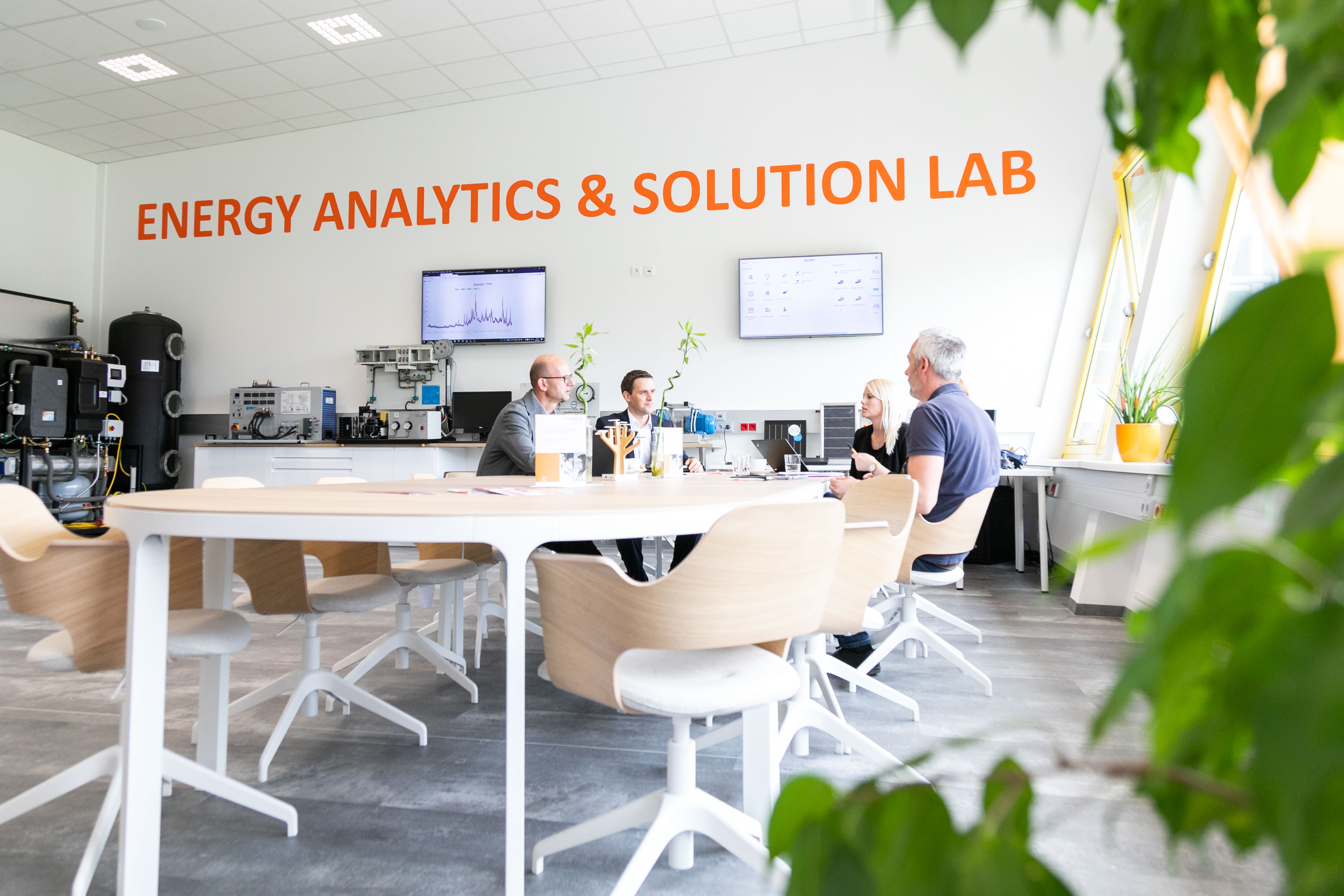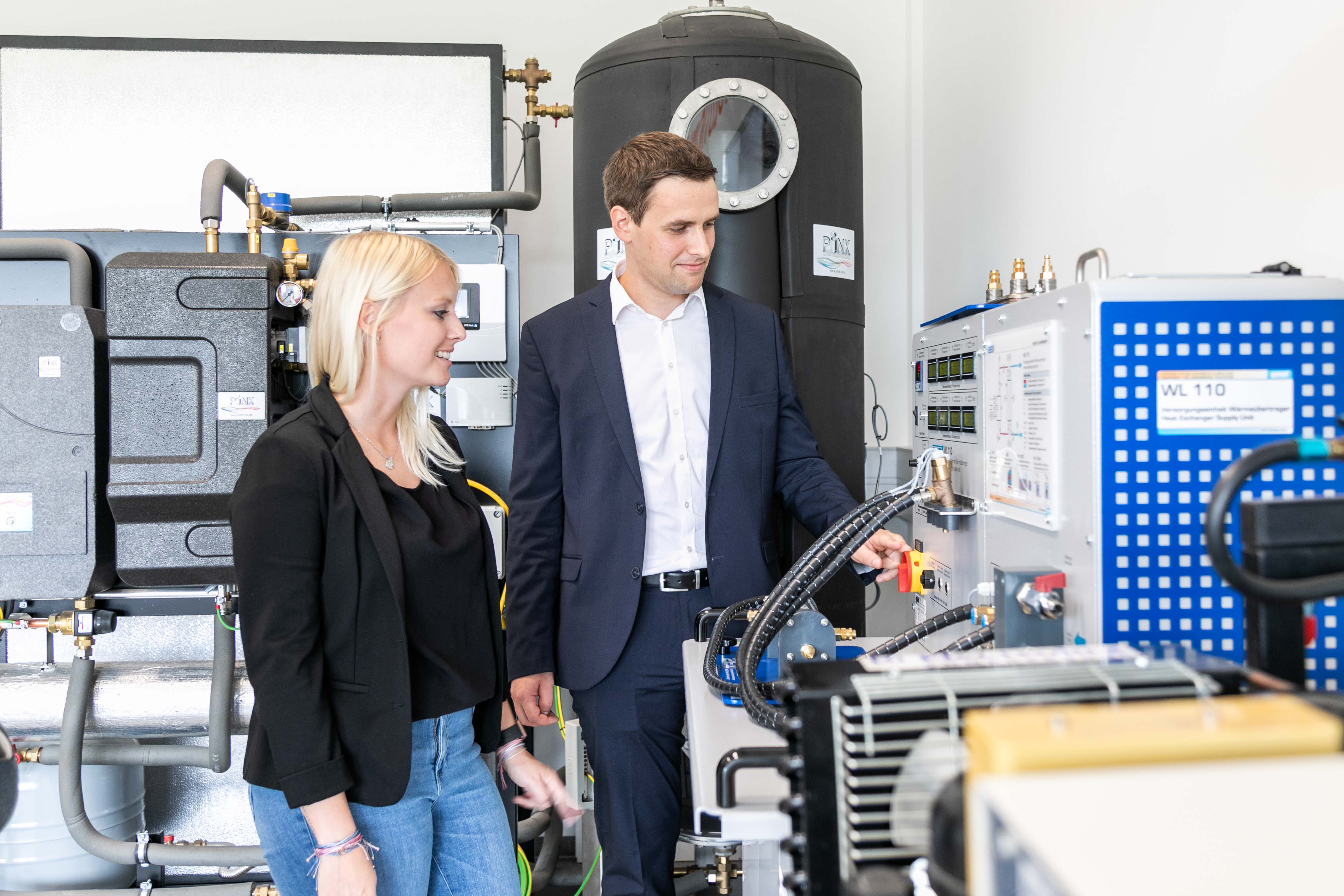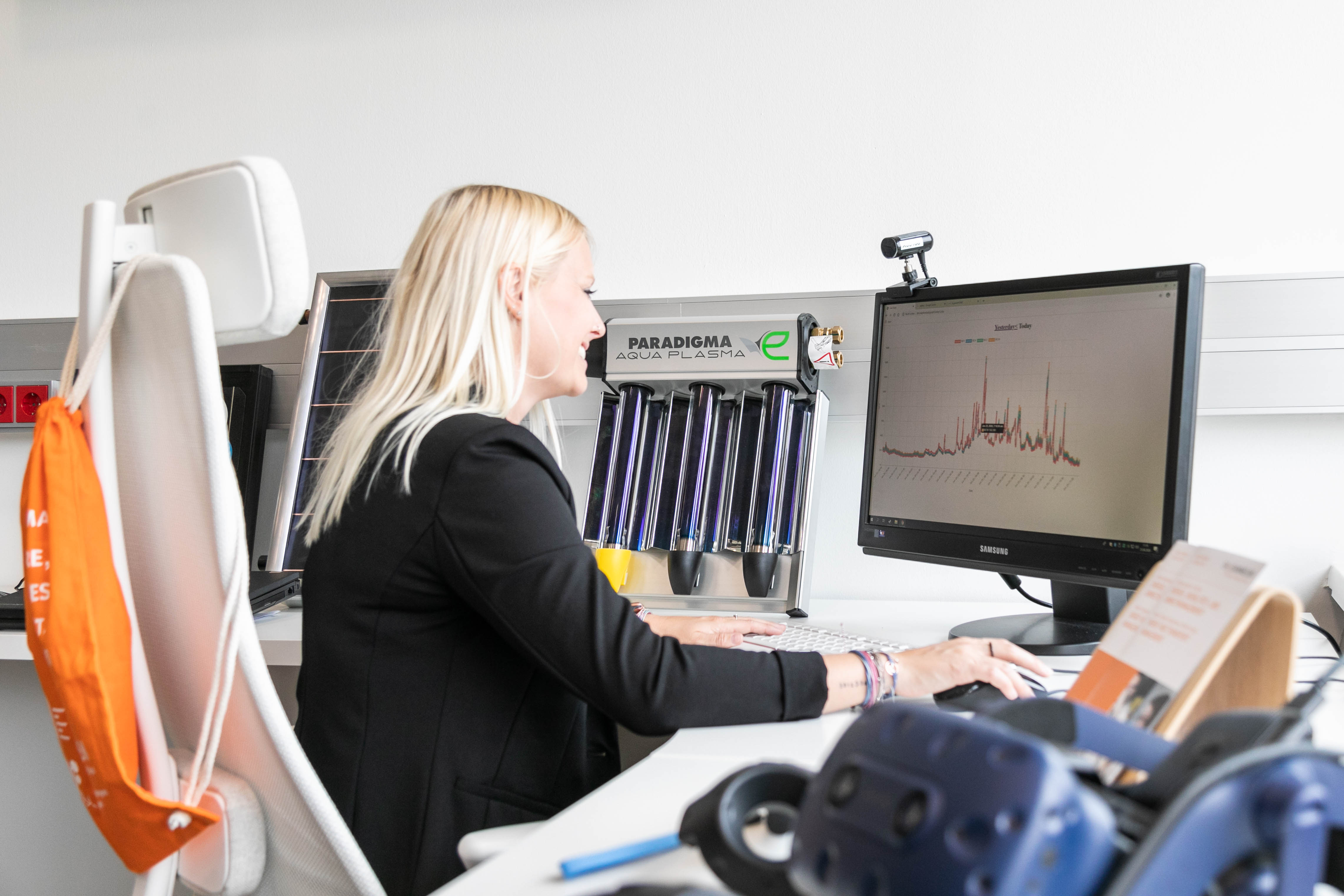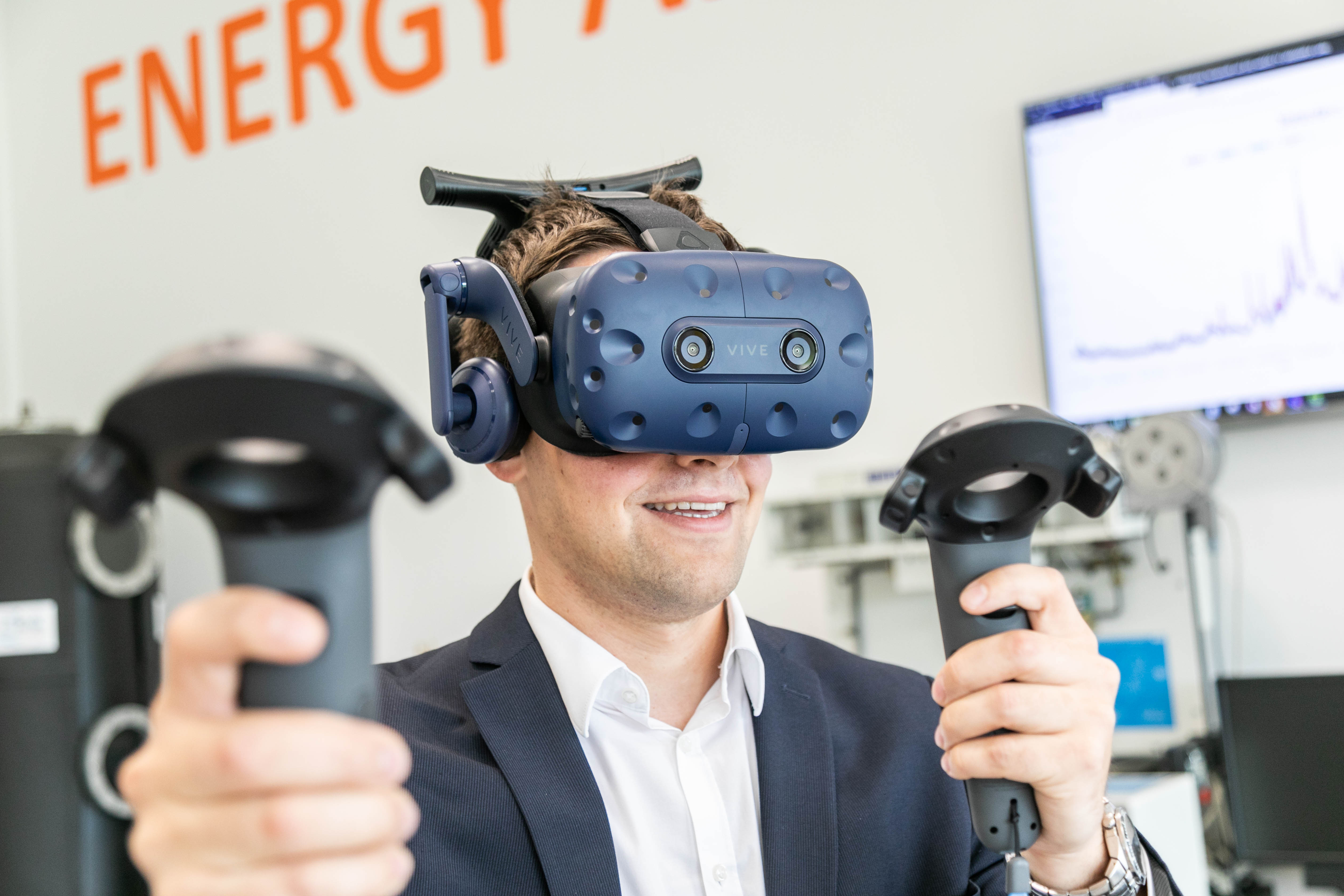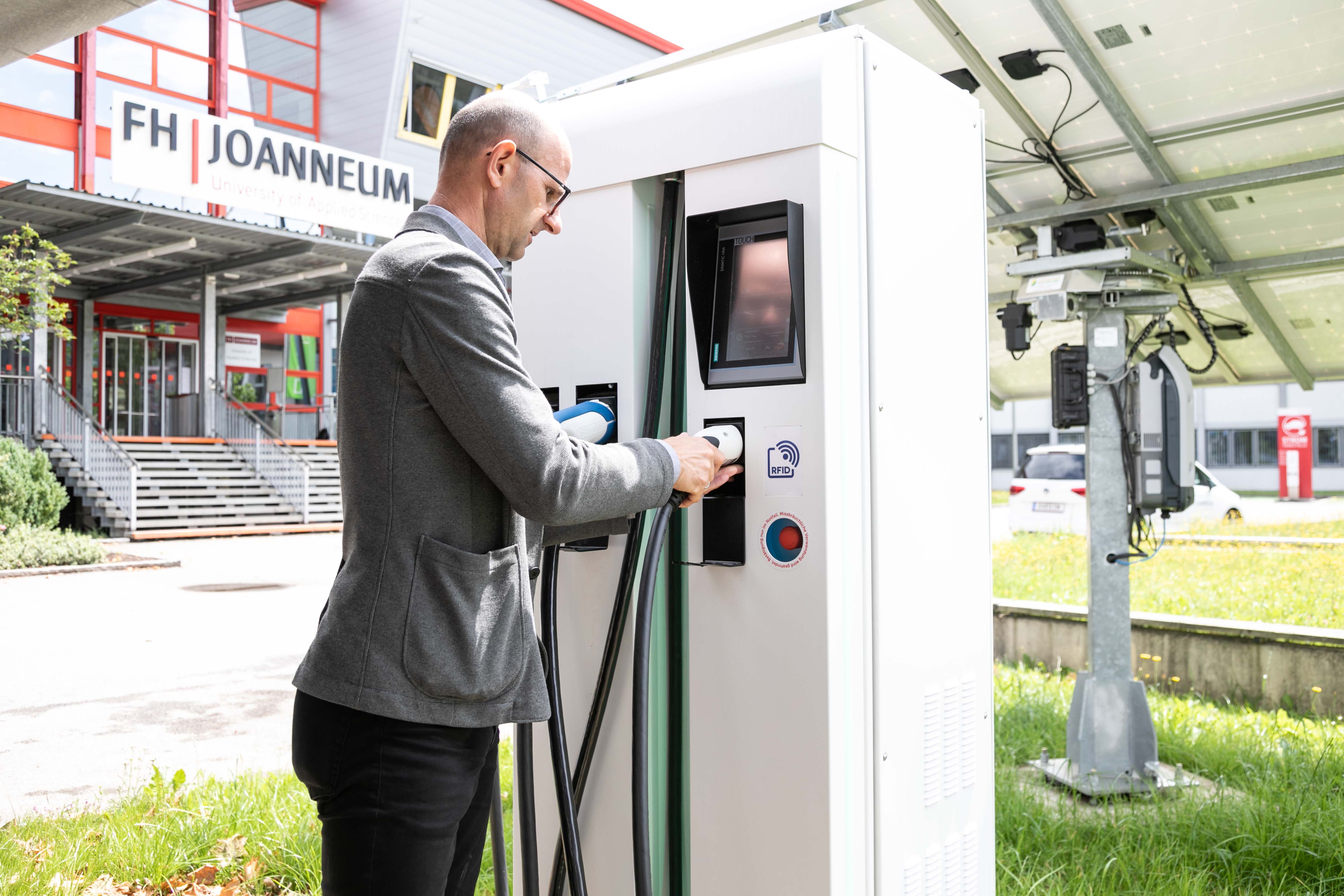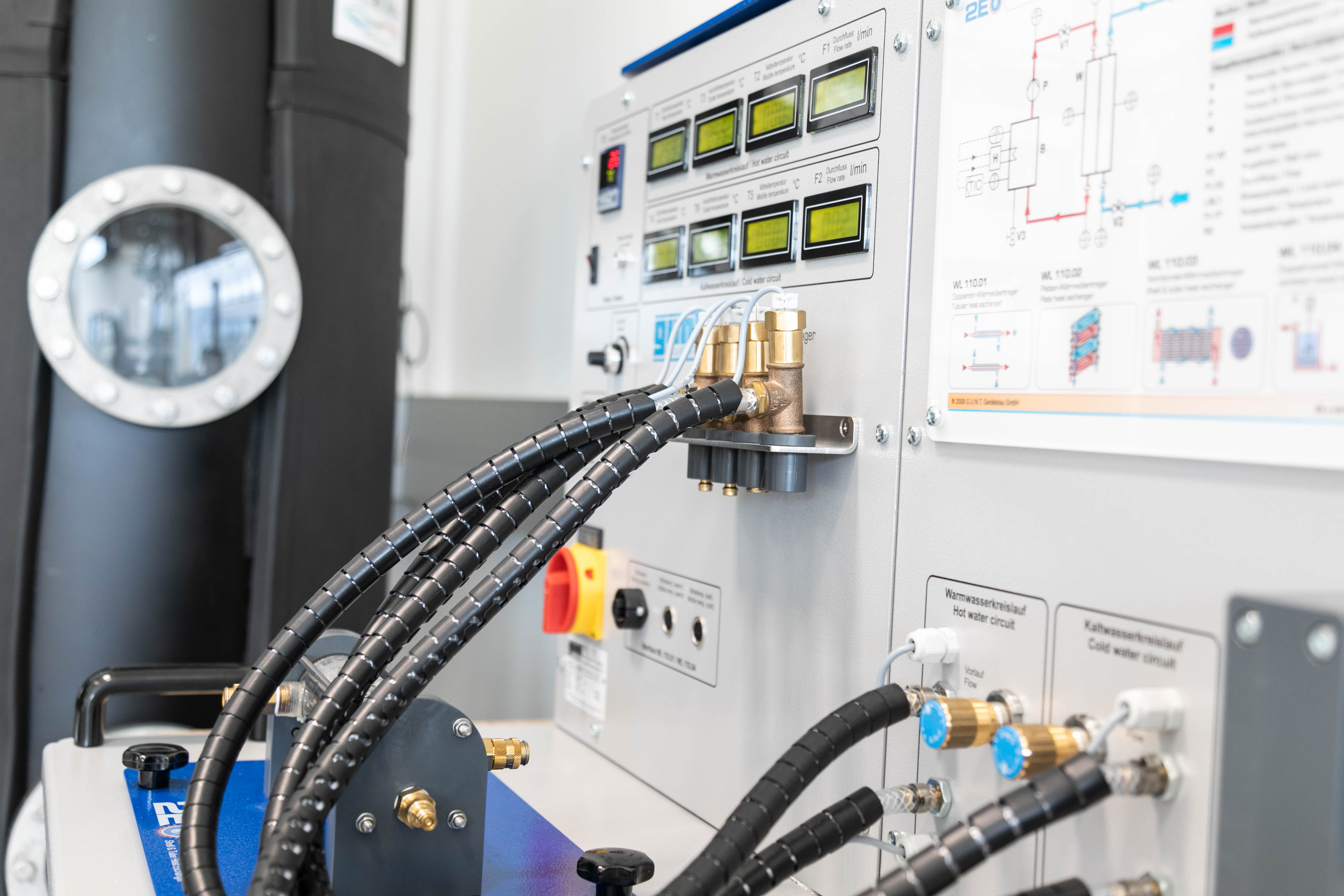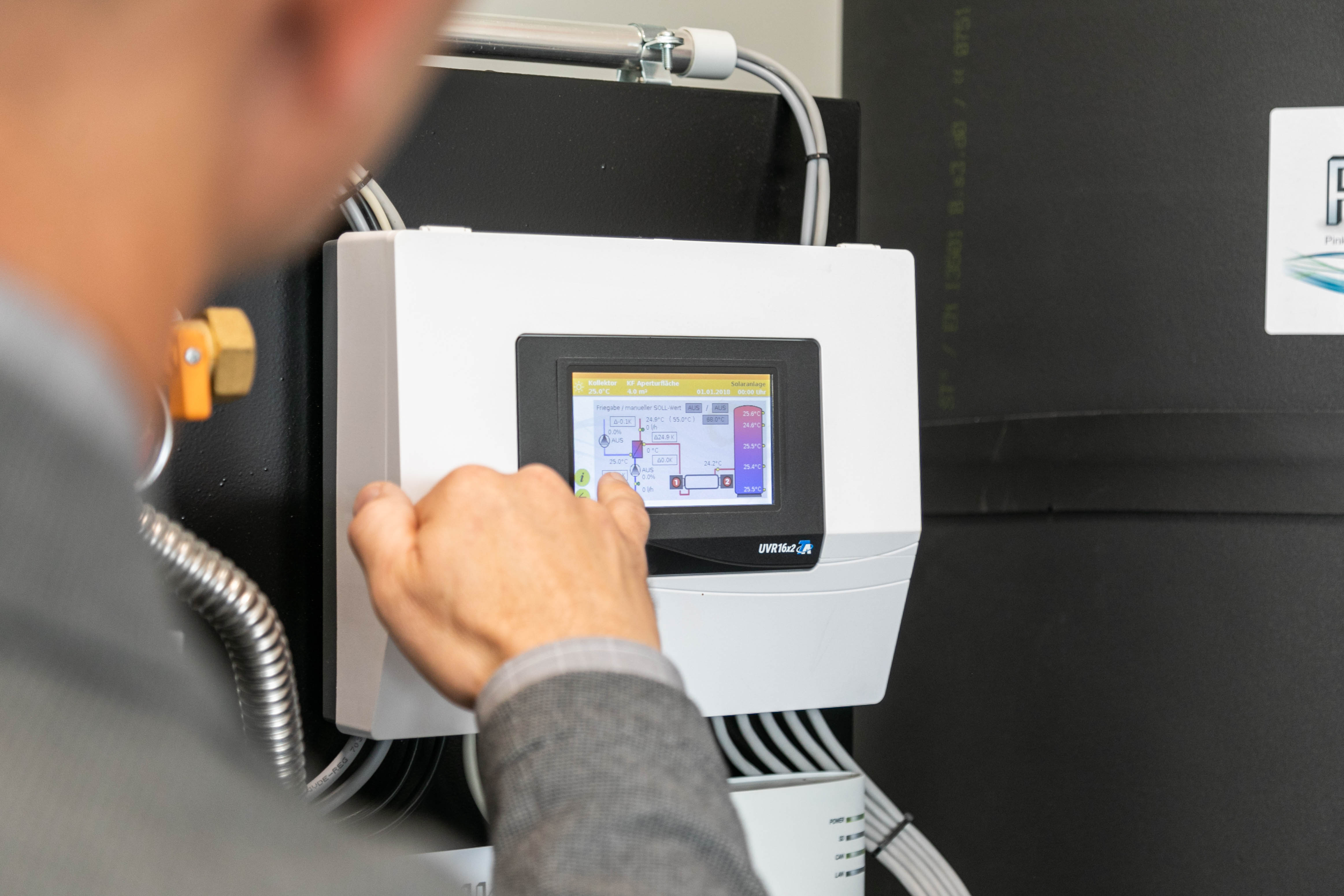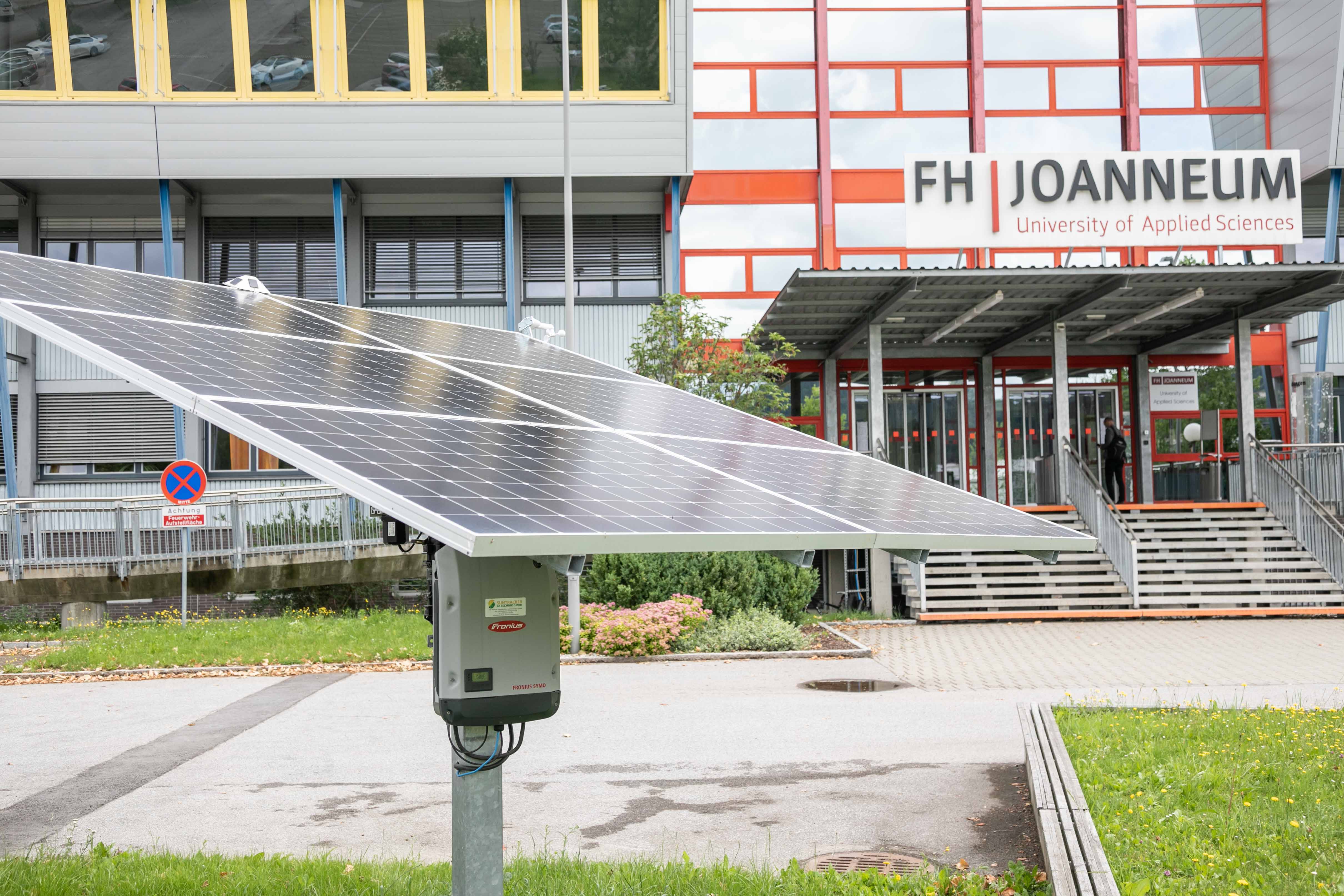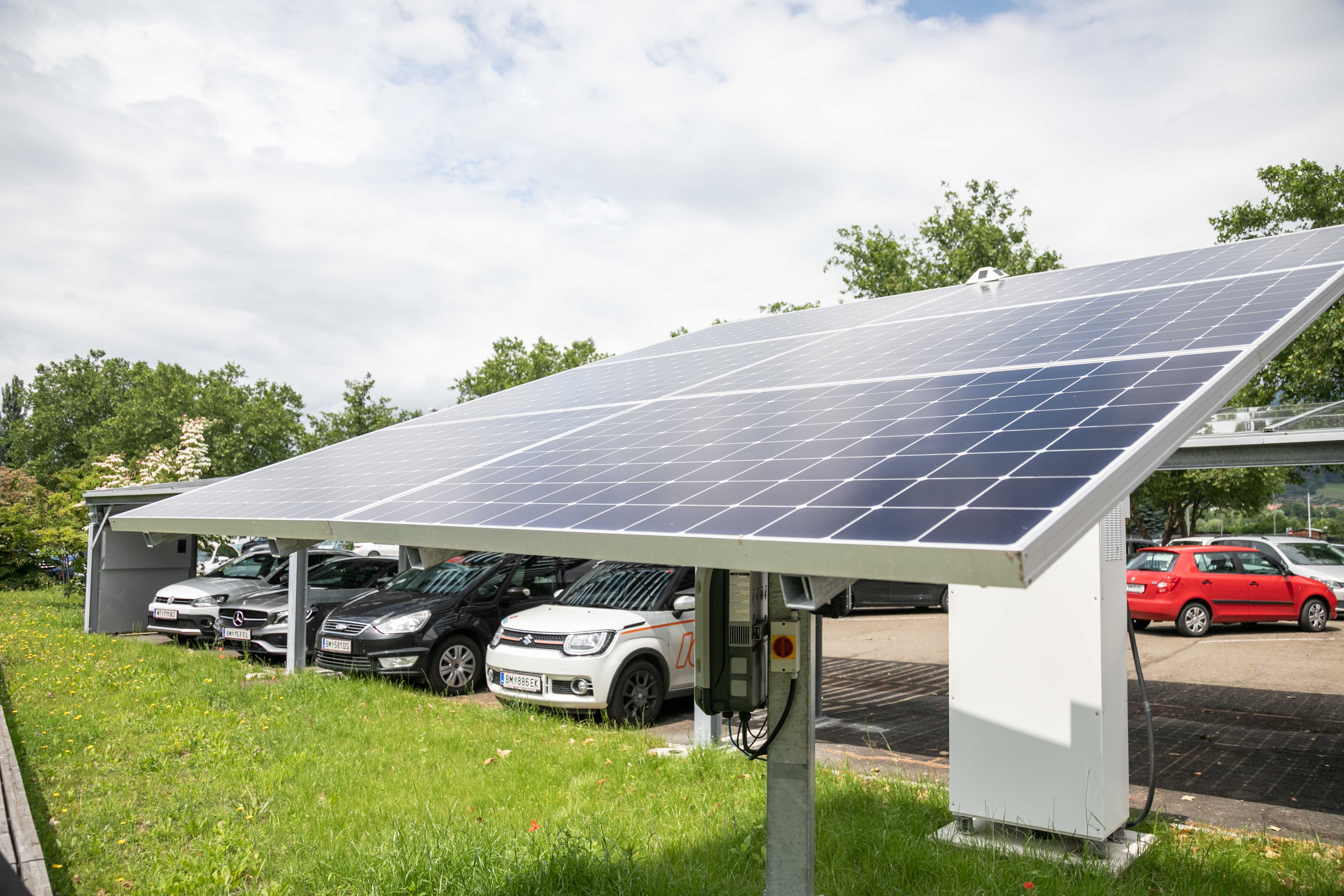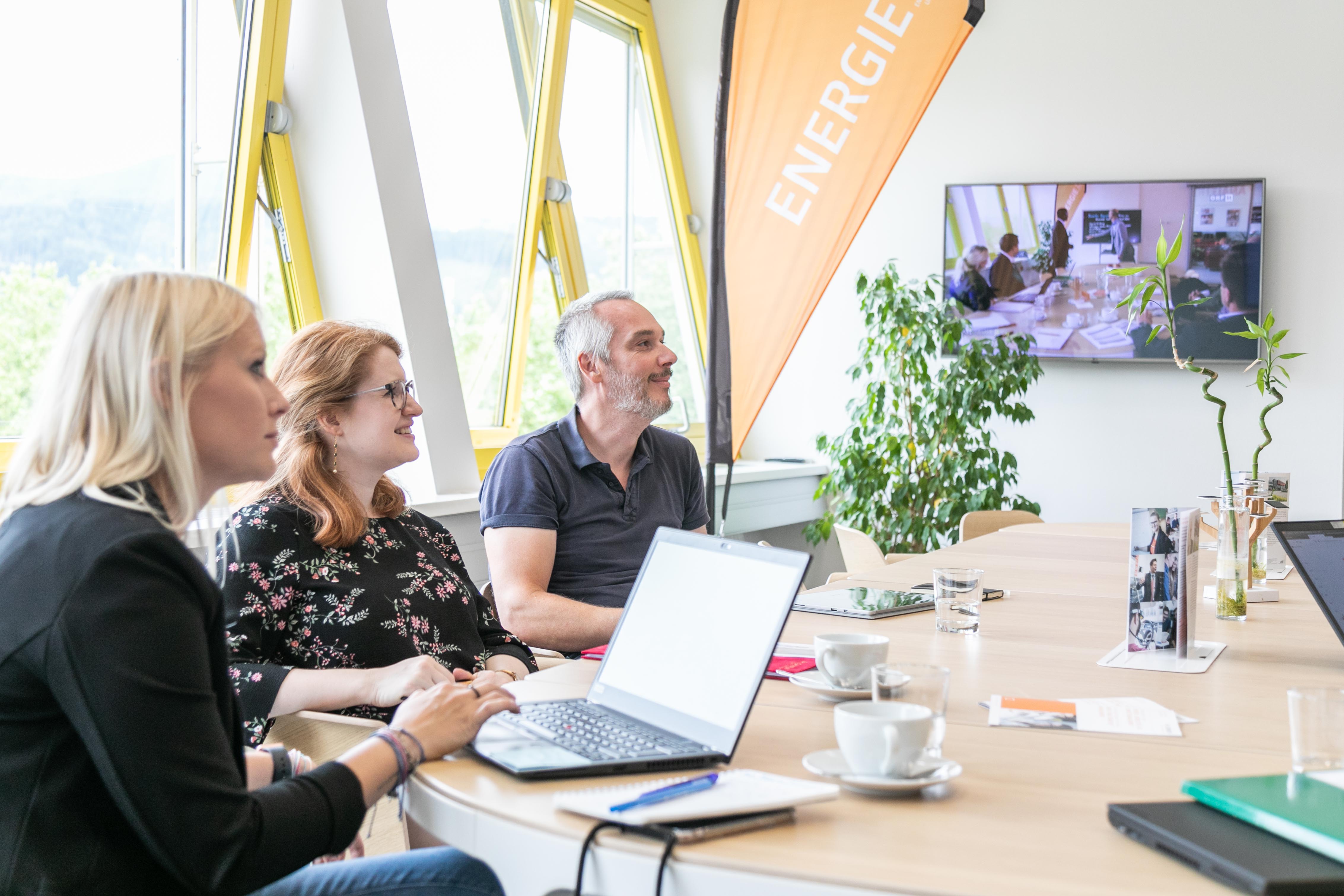The EAS Lab, located at FH JOANNEUM Kapfenberg and FH Campus 02 Graz, comprises renewable power generation plants, hybrid grids including storage units, charging facilities for electric mobility plus the latest innovative measurement, automation and visualisation components.
The EAS Lab is supplied with electrical energy from several photovoltaic systems. The power can either be used directly, or stored or converted into other forms of energy (Power-to-X). A smart charging management system allows electric cars to be charged with self-generated solar power via a household wallbox (3.7kW-22kW) or via a quick charger (50kW DC and 43kW AC). All commercially available Type 2, CHAdeMO and CCS connectors can be used. Another field of research focuses on billing and pricing and involves the testing of different payment options and chip cards.
The smart home system provides a clear overview and allows the key building components (lighting, shading, air conditioning) to be controlled via a web portal or a mobile app. The automation system can be used to intervene in the control system and to remote control the partner lab. Different load and optimisation scenarios can be tested and evaluated in a realistic setting and the data can be fed into computer simulations for integration into a digital twin.
Another innovative focus is on sector coupling, i.e. the integration of different energy carriers. Heat and cold can be produced from self-generated solar power and the integrated solar thermal system and can be stored or used for water heating or for air conditioning. The hybrid storage unit is coupled to a solar collector, an electric heating element and a heat exchanger and thus allows heat to be supplied and distributed using different technologies. When room temperatures increase during the summer, the air-conditioning unit can reduce the temperature in the lab to an acceptable level using environmentally friendly solar power.
The energy flows are controlled not only via conventional software and display monitors but also via an interactive human-machine interface. Technologies such as virtual reality (VR) and augmented reality (AR) and 3D glasses can be used to navigate the lab and to visualise and control energy flows.








